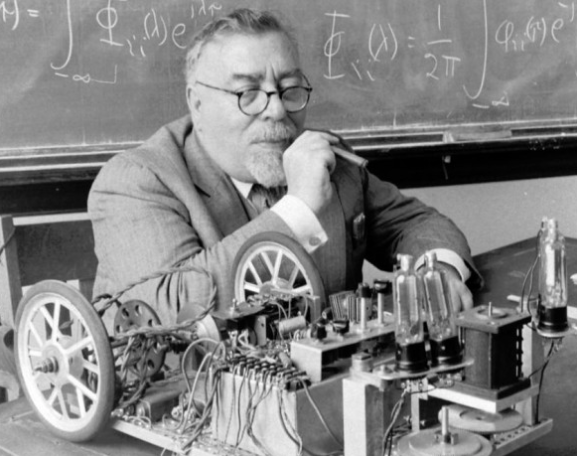Thinking machines in the physical world

Can driverless cars make ethical decisions? Should technologists warn communities of the effects their technologies are about to have? And can computers already think for themselves?
These and many more questions are being examined at a cross-disciplinary gathering in Melbourne this week.
Thinking Machines in the Physical World, sponsored by the University of Melbourne and IEEE, will examine the common thread to these questions.
At the core of this is Norbert Wiener, an MIT professor who founded cybernetics, the “cyber” in everything.
The Melbourne conference follows a successful launch of the series in Boston in 2014.
Conference Chair, Dr Greg Adamson from the Melbourne School of Engineering, said digital capabilities are taking us far in other spheres.
“The capture of data and the translation of data to meaningful information is changing the way we understand topics as important as medicine,” he said.
“Much of medicine is already data-driven and the understanding of genetics is also fuelling new discoveries leading us in a systems biology approach to learning.”
One of the keynote speakers, Professor Mathukumalli Vidyasagar, a Fellow of the Royal Society at the University of Texas at Dallas, will consider open problems in transfer learning rising from the advent of "next generation" sequencing in biology.
Professor Vidyasagar’s research uses mathematical and computer modelling to investigate processes and pathways underlying complex cancer conditions. He will be speaking about how machine learning can help analyse molecular data from cancer tumours.
Another speaker, Professor Judy Wajcman, a sociologist from the London School of Economics, will examine our fascination with technology and our desire to save time. She also asks whether we need a feminist reimaging of robots, or a female Dr Who to challenge the Silicon Valley vision of technology.
Dr Adamson believes we are at a great point in time as we embrace computational thinking with all its possibilities.
“This conference will focus our approach to the traditional and new and emerging challenges. With our abundant data and computational problem-solving, anything is possible,” he said.
IEEE is a 435 000-member global organisation for technology professionals dedicated to advancing technology for the benefit of humanity.
IEEE and its members inspire a global community to innovate for a better tomorrow through its highly cited publications, conferences, technology standards, and professional and educational activities. IEEE is the trusted “voice” for engineering, computing, and technology information around the globe.